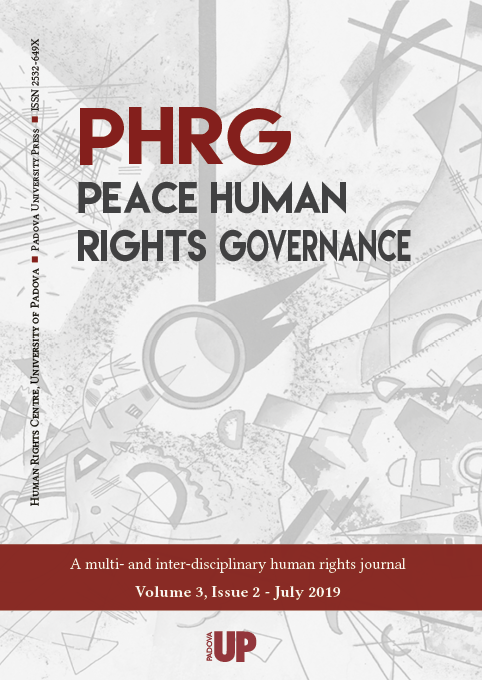Collections

The Two-way ‘Glocalisation’ of Human Rights or: How Cities Become International Agents in Migration Governance
- Pubblication type
- Articolo / Saggio
- Pages
- 215-239
- Language
- EN
‘We need to be part of U.N. decision-making if international agreements are to be responsive to on-the-ground realities’ (McCarthy 2017). Following the US government decision to withdraw from negotiating a ‘Global Compact for Safe, Orderly and Regular Migration’, local authorities such as the New York City Mayor’s Office joined forces with cities worldwide to demand a voice in international migration governance. We claim that this case illustrates an emerging strategy in city diplomacy – the two-way ‘glocalisation’ of human rights. Adopting this approach, cities localise international and European human rights law through local implementation. However, in the absence of national engagement at the international level or in the face of a negotiation deadlock, as in the current European migration and asylum debate, a window of opportunity is opening up for cities to go a step further: Cities retranslate local practices into global human rights discourses thus developing international agency to achieve three goals. 1) Cities create soft law to ensure local reception and integration policies grounded in fundamental international and European rights. 2) Through networks such as ‘EUROCITIES’ or the ‘Global Mayoral Forum’ cities lend legitimacy to EU and UN strategies and advocate rights-based migration governance holding EU and UN institutions and member states accountable by their own laws and values. 3) Based on their expertise as implementers and policy innovators, cities push for a place at the international and European negotiation tables. In this article, we present initial findings of our research on the role and activities of transnational municipal networks in the development of migration governance. We outline and illustrate cities’ glocalisation strategies with examples from the international and European context. The article concludes with concrete recommendations to the international, European, national and local level on how to incorporate cities’ transnational engagement in intergovernmental processes for truly coherent and rights-based migration governance.

